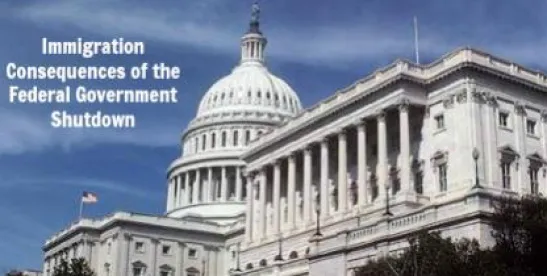The Senate passed the America Invents Act[1], previously known as the Patent Reform Act of 2011, on March 8, 2011. The Act passed by a 95 to 5 vote in the Senate, and President Obama issued a statement in support of the Act. The legislation is now sent to the U.S. House of Representatives. Some provisions of the Act have changed since we first reported the Patent Reform Act of 2011 in a prior client alert, while other provisions remained essentially unchanged. Some key changes to the Act and provisions of the Act, as passed by the Senate, are outlined below.
First to File
The Act passed by the Senate retains the provisions that move the U.S. from a first-to-invent system to a first-to-file system. Any third-party prior art available before the patent application filing date could be used to reject the application. An applicant would still be given a one year grace period for any disclosures made by the applicant or by another party if the other party obtained the subject matter that was disclosed from the applicant. The Act creates a derivation proceeding to replace current interference proceedings where a first applicant claims that a second applicant derived the invention from the first applicant’s work.
Damages
The bill originally passed by the Senate Judiciary Committee included procedures for the calculation of damages during litigation and for the determination of infringement and validity issues before the issues of damages and willful infringement. Both of these provisions were removed from the Act passed by the full Senate.
Micro Entity Fee Reductions
The Act allows the Patent Office to define a micro entity that would be eligible for a 75 percent reduction in fees, and retains the current small entity fees that are generally reduced by 50 percent.
Patent Office Fee Setting Authority
Under the Act, the Patent Office can set patent and trademark application and maintenance fees without approval by Congress. Also, the Act ends the diversion of fees collected by the Patent Office.
Best Mode Requirement
An alleged infringer could no longer have a patent invalidated for an applicant’s failure to disclose the best mode for carrying out the invention.
False Marking
The Act passed by the Senate retained the original provisions that would no longer allow any person to bring a false marking lawsuit under 35 U.S.C. Section 292. Rather, false marking lawsuits would be limited to those filed by the United States or by a competitor who can prove a competitive injury.
Third Party Challenges
Similar to the version of the bill passed by the Senate Judiciary Committee, third parties would be allowed to submit printed publications after an application publishes, along with an explanation regarding the relevance of the printed publication. Also, third parties would be able to request a post-grant review to challenge validity within nine months of the patent grant, bringing the U.S. in line with European opposition practice. Validity during the post grant review could be challenged on any ground, in contrast to current reexamination rules, which only allow challenges based on patents or printed publications. After the nine month window for post grant review, third parties could use a reexamination proceeding, but could only challenge validity based prior art patents or printed publications.
Supplemental Examination
The bill passed by the full Senate retains a Supplemental Examination procedure that was included in the version passed by the Senate Judiciary Committee. A patent owner could request a supplemental examination (e.g., before litigation) so that the Patent Office considers information that was not considered during an earlier examination. Unlike the current reexamination procedures, the information that can be considered in a supplemental examination would not be limited to patents or printed publications. If the Patent Office determines that the submitted information raises a substantial new question of patentability, a reexamination of the patent will be ordered. By making the supplemental examination request, even if a reexamination is not ordered, the patent cannot be held unenforceable on the basis of the information in the supplemental examination request.
We will continue to monitor the status of this legislation and provide updates.
A full copy of the American Invents Act passed by the Senate is available via the following link.





 />i
/>i

